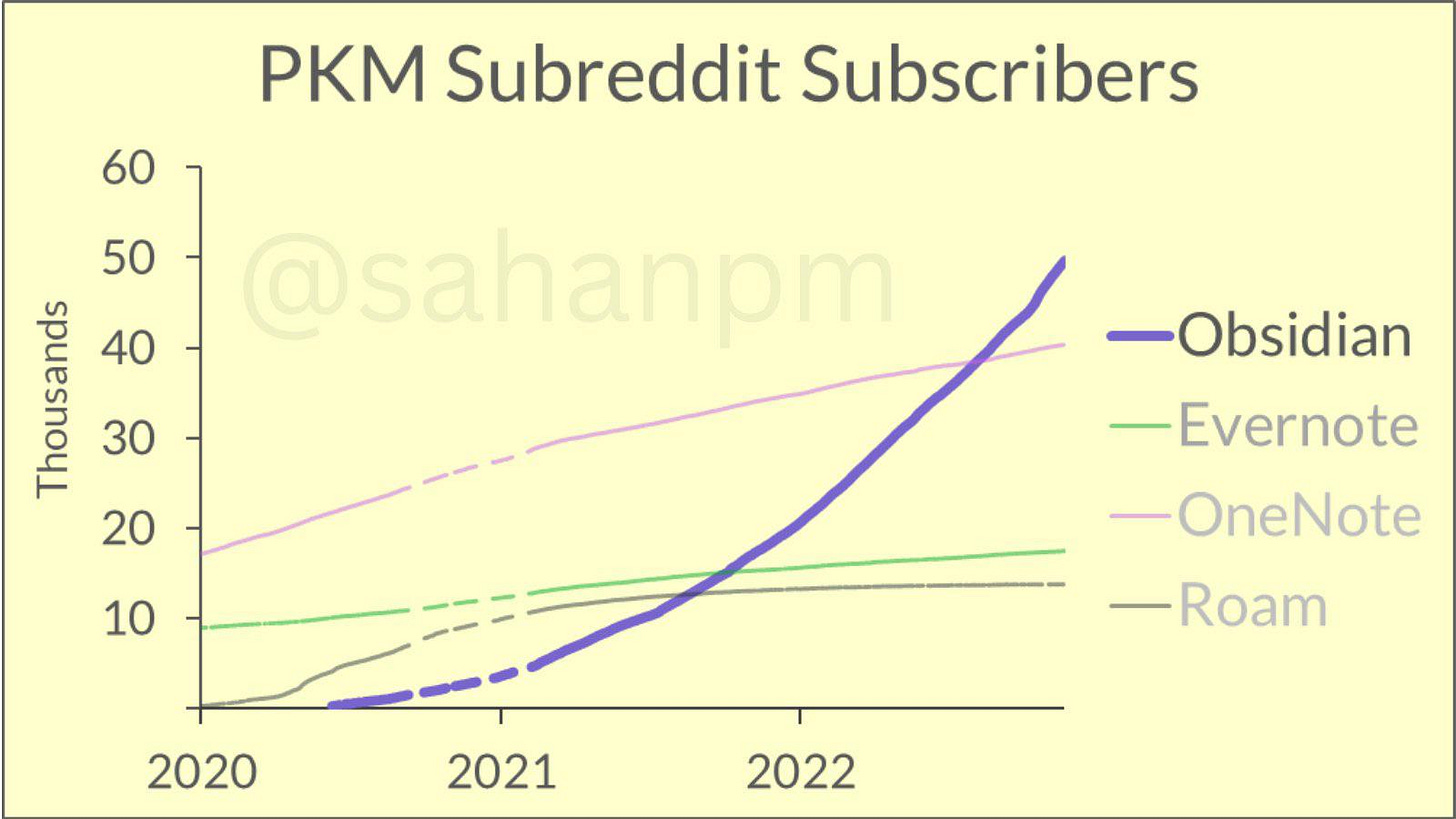77: A Wikipedia for Thoughts and Concepts + Breaking my Promise after 1 Week 🔗
This week I shared five short articles:
Key considerations for the use of AI in healthcare and clinical research
Medical AI is well-suited to complex input, personalised output and scaling through automation
On the subject of the last article, I have a confession. I think building 52 'startups' in 52 weeks is actually a terrible idea.
Update: I'm going for 12 in 12 months. Which is that same cadence as the original inspiration for the idea (Pieter Levels). So I'm being less original, but more practical.
The main reason it's bad is that it pushes towards superficialty. It makes me want to ship and move on before I've really thought about the problem, which is kinda pointless.
This week, I started to build a tweet-thread generator by fine-tuning GPT. A bunch of people have built these, but they're not that good (in my experience). I haven't seen that both (1) writes good tweets and (2) personalises to an individuals style + interests (ie. avoiding the "popular tweets start to sound like fortune cookies" problem).
But the truth is, I don't care enough about this problem. And I'm not fast enough to hack together something meaningfully useful on this within a few days.
The future of human-digital-human collaboration 🤖
When I started using Obsidian in 2020, it opened my eyes to a new way of storing and managing knowledge*.
Fast forward 2 years and I now have more than 10,000 markdown files containing everything from the articles on my website and notes on machine learning concepts to the plans for my summer holidays and automatically-generated life dashboards.
Recently, I'm most interested in the idea of "evergreen"/"atomic" notes being used like APIs - and what it could enable.
I think the natural next-step for the "second brain/PKM/digital garden" space is for better inter-person collaboration. You can share your Notion/Obsidian/other notes as a webpage on the internet pretty easily. But there's no real way to collaborate with a webpage (even given tools like Hypothesis).
If we defined the standards for an "atomic/evergreen note" (including the API-titling standard), and a way for the notes on different concepts to be combined and linked, we could create a new kind of Wikipedia - centred around ideas and concepts rather than facts.
I have a bunch of ideas around what this could look like. I'd love to chat if this sounds interesting. If not you, feel free to share with somebody you think might be interested.
I'm planning to use my personal website as the initial testing ground. You'll notice the articles I shared this week follow the API-title and atomic-note principles. There's some back-end stuff that isn't obvious yet, but I'll share updates in the coming weeks.
*And based on the Obsidian subreddit user graph, it looks like part of a trend:
About Me
👋 Hi, I'm Chris Lovejoy.
I'm a medical doctor 🩺 -> machine learning engineer 👨💻 -> start-up founder 💡
I'm on a mission to improve how we manage our health - and share my learnings and experiences here, on my personal website and on YouTube.
I also throw in my favourite things from the internet, and the occasional joke (humour is work-in-progress).

